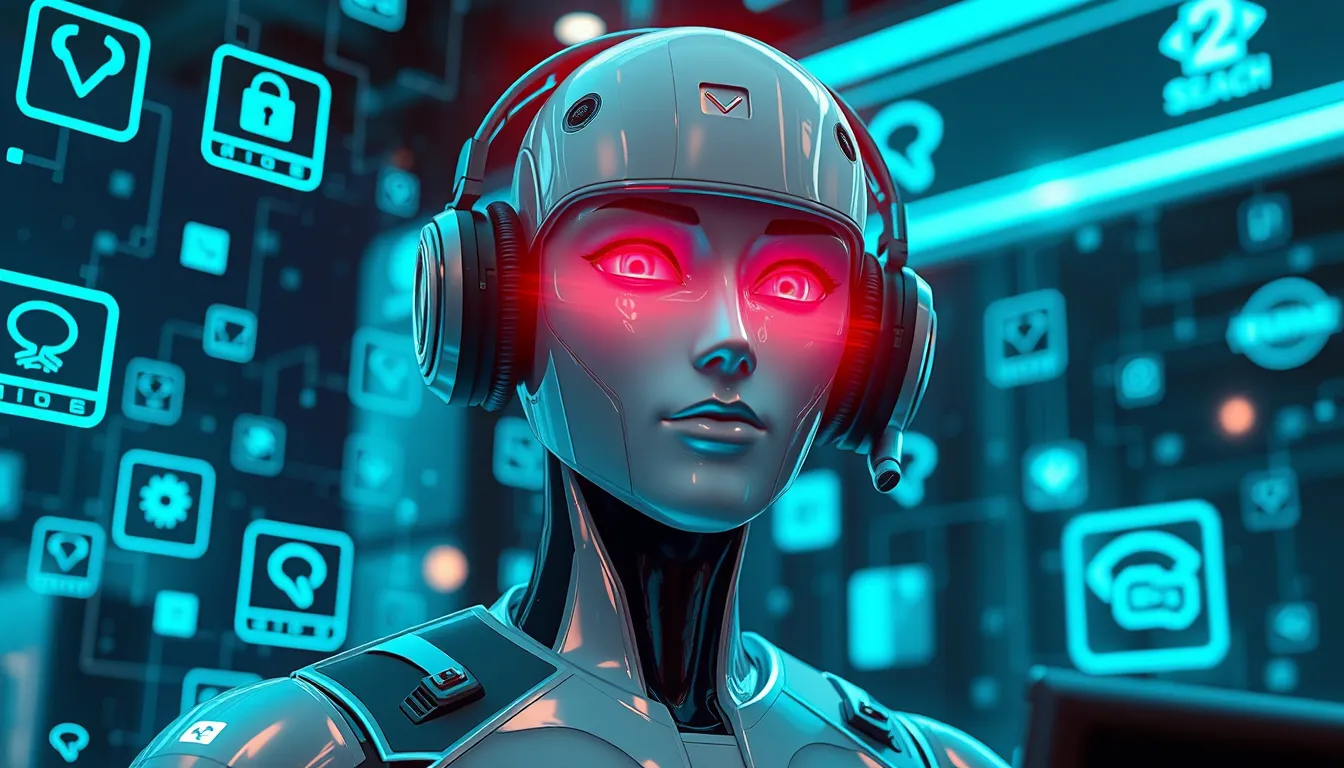Now Reading: Cutting-Edge AI in Healthcare Diagnostics: Innovating Patient Care
-
01
Cutting-Edge AI in Healthcare Diagnostics: Innovating Patient Care
Cutting-Edge AI in Healthcare Diagnostics: Innovating Patient Care

Cutting-Edge AI in Healthcare Diagnostics: Innovating Patient Care
Introduction
The medical field is experiencing a transformative era thanks to the rapid integration of artificial intelligence. AI in healthcare diagnostics is revolutionizing the way diseases are detected and treated. This technology not only increases diagnostic accuracy but also speeds up the process of identifying potential health issues, ultimately leading to improved patient outcomes.
Over the past few years, AI has moved from being a futuristic concept to a practical tool in hospitals and research facilities worldwide. With the ability to analyze vast amounts of imaging data and predict diseases even before symptoms appear, AI is at the forefront of medical innovation.
The Impact of AI in Healthcare Diagnostics
AI in healthcare diagnostics is changing traditional models of patient care. Here are some key areas where this technology is making a significant impact:
- Enhanced Diagnostic Accuracy: Leveraging machine learning algorithms, AI systems can identify subtle patterns in medical images that are often difficult for the human eye to detect.
- Early Disease Prediction: AI tools use historical patient data and real-time indicators to predict potential health risks, enabling preemptive interventions.
- Improved Workflow Efficiency: Automation of routine tasks helps healthcare professionals focus on delivering personalized care.
- Cost-Effective Solutions: AI diagnostics reduce the need for multiple tests and repeat visits, thereby lowering overall healthcare costs.
The benefits of AI in healthcare diagnostics are clear. When used correctly, this technology not only enhances accuracy but also speeds up the overall diagnostic process. For more detailed insights, check out the latest research on AI technologies on reputable platforms like the National Institutes of Health.
How AI in Healthcare Diagnostics Works
The process begins with data collection. Modern diagnostic AI systems are trained on thousands of high-resolution images. Then, advanced machine learning algorithms process these images to detect abnormalities. Below is a simplified overview of the workflow:
- Data Acquisition: Medical images are gathered from various sources including MRI scans, X-rays, and CT scans.
- Preprocessing: The acquired data is cleaned and formatted for analysis.
- Analysis: AI algorithms identify patterns and anomalies that might indicate health issues.
- Results Interpretation: The final results are presented to medical professionals who can make informed decisions based on AI suggestions.
Integrating these steps, AI in healthcare diagnostics provides a seamless and efficient diagnostic experience which is reshaping how healthcare is delivered.
Challenges and Future Prospects
Despite the promising benefits, there are challenges that need to be addressed to maximize the potential of AI in healthcare diagnostics:
- Data Privacy: Ensuring the security of patient data is paramount.
- Algorithm Transparency: It is vital that AI decision-making processes are explainable to healthcare providers.
- Regulatory Hurdles: Different countries have varying regulations which can slow down the deployment of AI technologies.
Looking ahead, the future of AI in healthcare diagnostics is bright. Continuous improvements in AI technology, combined with stricter data security measures and clearer regulatory guidelines, are expected to further enhance the efficiency and safety of diagnostic processes.
Real-World Applications and Success Stories
There are many real-world examples where AI in healthcare diagnostics has already made a notable difference. For instance, hospitals worldwide are using AI to interpret radiology images, leading to faster and more accurate treatment plans. Companies like IBM and Philips are actively investing in these technologies to improve patient care. Additionally, organizations such as OpenAI are at the forefront of AI research, further advancing the capabilities of diagnostic tools.
- A leading hospital in the United States improved its diagnostic rates by over 25% within the first six months of integrating AI systems.
- European healthcare networks reported a significant reduction in diagnostic errors when using AI-powered tools.
- In Asia, AI diagnostics have streamlined patient care, reducing waiting times and improving treatment outcomes.
Conclusion
In conclusion, AI in healthcare diagnostics represents a paradigm shift in modern healthcare. By enhancing diagnostic accuracy, predicting potential diseases early, and optimizing workflow, AI is delivering tangible benefits in patient care. As technology continues to evolve, the role of AI in healthcare diagnostics will undoubtedly become more integral to everyday medical practice.
For further reading on cutting-edge healthcare technologies, visit reputable sources like the Mayo Clinic and explore comprehensive insights on emerging trends.
This article highlights the importance of embracing technological advancements in health. With continued research and development, AI in healthcare diagnostics will pave the way for a future with improved diagnostic precision and overall patient care.
Remember, staying informed and updated with technology trends can empower both healthcare professionals and patients alike. With this coming wave of change, the integration of AI in healthcare diagnostics promises not just improvements in medical outcomes but a revolution in personalized patient care. Embrace these innovations to witness a healthier tomorrow.

























